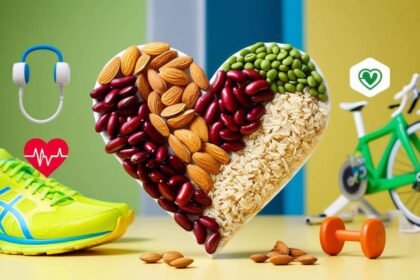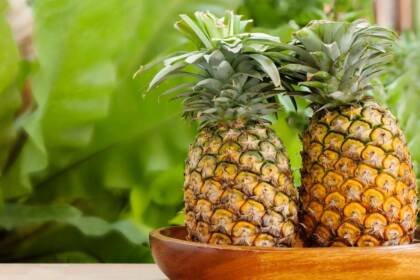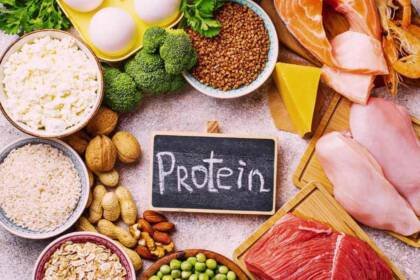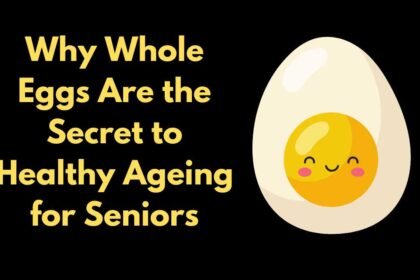Switching to a vegan diet is a major lifestyle change that has gained significant attention in recent years.
As more people become conscious of their health, environmental impact, and ethical choices, veganism has emerged as a compelling option.
While adopting a strictly plant-based diet offers numerous health benefits, it is not without challenges and risks.
Let’s delve into what happens to your body on a vegan diet by analyzing both its advantages and potential pitfalls.
The Basics of a Vegan Diet
A vegan diet eliminates all animal-derived products, including meat, dairy, eggs, and even honey. Instead, it emphasizes fruits, vegetables, whole grains, nuts, seeds, legumes, and plant-based alternatives like tofu and almond milk.
This strict dietary pattern sets veganism apart from vegetarianism, which permits some animal products, such as eggs and dairy.
The appeal of a vegan lifestyle often extends beyond health benefits. Many adopt it for ethical reasons—advocating against animal cruelty—and for its sustainability, as plant-based diets typically have a lower environmental footprint.
Health Benefits of a Vegan Diet
A well-planned vegan diet can have profound positive effects on your health. Here are the primary benefits:
1. Improved Blood Sugar Control
One of the most notable benefits of a vegan diet is its potential to improve blood sugar levels. Rich in fiber and low-glycemic foods, a vegan diet slows digestion, prevents blood sugar spikes, and enhances insulin sensitivity.
The inclusion of legumes, which are high in blood sugar-stabilizing fiber, plays a pivotal role.
Studies show that vegans consume more than twice the fiber of meat-eaters, reducing their risk of developing diabetes.
2. Enhanced Heart Health
Vegan diets are typically low in saturated fats, which helps lower LDL cholesterol, a key contributor to heart disease.
The high fiber and potassium content in plant-based foods further support heart health by reducing blood pressure.
Research has revealed that adhering to a healthy plant-based diet can lower the risk of cardiovascular disease-related death by 19%.

The Complete Plant Based Recipe Cookbook – 200+ Vegan Recipes
Discover over 200 quick, delicious, and healthy plant-based recipes in The Complete Plant-Based Cookbook. Perfect for all eaters, it’s your ultimate guide to tasty, vibrant vegan meals anywhere!
3. Reduced Cancer Risk
Packed with antioxidants and anti-inflammatory compounds, vegan diets help protect cells from damage and reduce the risk of certain cancers, including colorectal and breast cancers.
Although more research is needed to draw firm conclusions, existing studies suggest that vegans and vegetarians generally have lower cancer rates compared to meat-eaters.
4. Weight Management
Many people turn to veganism as a strategy for weight loss. The high fiber content of plant-based foods promotes satiety while consuming fewer calories.
Studies indicate that vegans tend to have a lower body weight and a reduced risk of obesity compared to those following omnivorous diets.
Challenges and Risks of a Vegan Diet
Despite its benefits, a vegan diet is not without challenges. Poor planning or neglecting key nutrients can lead to health issues. Here are the primary risks:
1. Vitamin B12 Deficiency
Vitamin B12 is primarily found in animal products and is crucial for brain function, red blood cell production, and DNA synthesis.
Vegans are at a higher risk of deficiency, which can lead to anemia, fatigue, and even neurological issues.
To counter this, vegans must rely on fortified foods, supplements, or natural sources like seaweed and shiitake mushrooms.
2. Potential for Stroke
While a vegan diet may reduce cholesterol levels, research suggests it could increase the risk of stroke by 20%.
This is potentially linked to vitamin B12 deficiency, which can raise homocysteine levels in the blood, contributing to vascular damage. Proper supplementation can mitigate this risk.
3. Other Nutrient Deficiencies
In addition to vitamin B12, vegans may lack other essential nutrients, including vitamin D, iodine, calcium, iron, zinc, and omega-3 fatty acids.
These deficiencies can impact bone health, immune function, and overall well-being. Incorporating fortified plant-based foods and supplements is critical to maintaining a balanced diet.
4. Digestive Issues
The high fiber content of a vegan diet can lead to gas, bloating, and constipation, particularly during the initial transition. Gradually increasing fiber intake and staying hydrated can help alleviate these symptoms.
Tips for a Successful Vegan Transition
Switching to a vegan diet requires careful planning to ensure it is nutritionally complete and sustainable. Here are some practical tips:
- Diversify Protein Sources: Contrary to popular belief, plant-based diets can provide sufficient protein. Incorporate a variety of sources like lentils, chickpeas, tofu, tempeh, and seitan to meet your protein needs.
- Focus on Fortified Foods: Look for fortified plant milks, cereals, and nutritional yeast to obtain essential nutrients like vitamin B12, calcium, and vitamin D.
- Plan Balanced Meals: Include a mix of macronutrients (carbohydrates, proteins, and fats) and micronutrients (vitamins and minerals) in every meal. For example, pair leafy greens with a healthy fat source like avocado to enhance nutrient absorption.
- Supplement Wisely: Consult a healthcare provider or dietitian to determine which supplements, such as vitamin B12 or omega-3, are necessary for your specific needs.
- Ease Into the Diet: Transitioning gradually can help your body adjust to the higher fiber intake and reduce digestive discomfort.
- Experiment with Recipes: Explore diverse cuisines and experiment with plant-based recipes to keep meals exciting and prevent boredom.
Foods to Enjoy on a Vegan Diet
A vegan diet offers a wide variety of delicious and nutritious options. Here are some examples:
- Plant-Based Proteins: Tofu, tempeh, seitan, edamame, and legumes.
- Whole Grains: Quinoa, brown rice, oats, and farro.
- Fruits and Vegetables: A colorful array of seasonal produce to maximize nutrient intake.
- Nuts and Seeds: Almonds, walnuts, chia seeds, and flaxseeds for healthy fats.
- Dairy Alternatives: Almond milk, coconut yogurt, and vegan cheese.
- Vegan-Friendly Desserts: Flourless chocolate cake, apple crisp, and vegan cookies.
Conclusion
A vegan diet can be a powerful tool for improving health, reducing environmental impact, and promoting ethical eating.
However, it requires thoughtful planning and awareness of potential nutrient deficiencies.
By diversifying food choices, incorporating fortified products, and supplementing when necessary, you can enjoy the numerous benefits of veganism while minimizing its risks.
Before embarking on this dietary journey, consult with a registered dietitian or healthcare provider to tailor a plan that meets your unique nutritional needs.
With the right approach, a vegan diet can be a fulfilling and health-promoting lifestyle choice.












